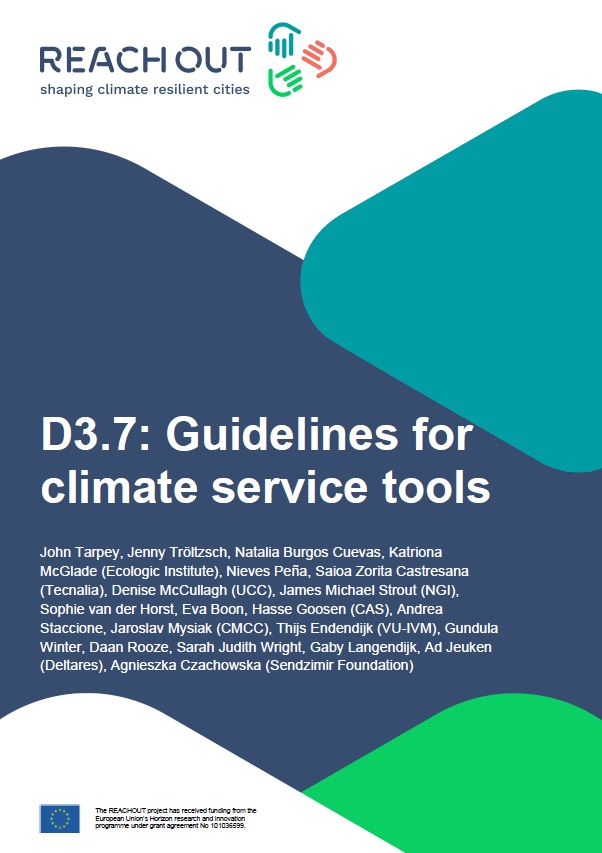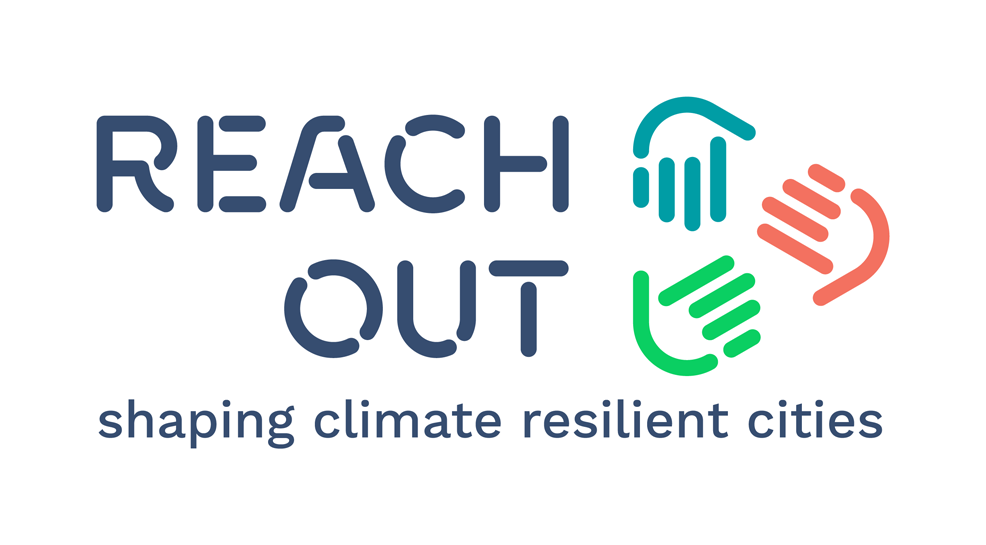© REACHOUT project 2025
Building Resilient Cities
New Videos and Tools for Heat and Flood
- News
- Date
-
- Location
- Berlin, Germany
Across Europe, cities are feeling the growing impact of climate change – from prolonged heatwaves to more frequent and severe flooding. For local planners and decision-makers, responding to these complex challenges often means navigating tough decisions with limited guidance.
To bridge this gap, the REACHOUT project has developed two new explainer videos that bring climate service tools to life. These short, accessible films introduce the Triple-A Toolkit – a practical, science-based platform designed to support urban adaptation and resilience planning. The videos offer clear, real-world examples of how digital tools can help cities turn climate data into informed, actionable strategies.
The first video focuses on urban heat, one of the most visible impacts of climate change. It explores the key policy challenges associated with rising temperatures and shows how climate tools can help assess risks and guide adaptation planning. The second video addresses fluvial flooding, highlighting the tools available for hazard mapping, scenario planning, and long-term resilience strategies.
Both videos demonstrate how these tools can be combined within the Triple-A approach, supporting cities at different stages of the adaptation cycle – from problem identification to strategic action. Whether dealing with extreme heat or flood risks, the goal is the same: to empower urban planners and decision-makers with science-based, user-friendly solutions for a climate-resilient future.
Watch the video: Tackling Urban Heat: Tools for City Planners
Featured tools:
- Thermal Assessment Tool (TAT) – for visualizing past and future heatwaves
- Social Vulnerability Index Tool (SVI) – to identify vulnerable communities
- Climate Resilient City Toolbox (CRCTool) – to support planning and stakeholder dialogue
Watch the video: Increasing Flood Resilience: Tools for City Planners
Featured tools:
- Pluvial Hazard, Risk and Adaptation Tool – for mapping local flood hazards
- FloodAdapt – to support decision-making on adaptation actions
- Adaptation Pathway Generator – for exploring long-term adaptation scenarios
Both videos were developed by Ecologic Institute as part of the EU-funded REACHOUT project, in close collaboration with Deltares, CAS, Tecnalia, RCN, and the tool developers. By translating complex climate adaptation concepts into clear, engaging visual stories, Ecologic supports the practical uptake of climate services – helping cities understand not only what tools are available, but how to apply them in real-world planning contexts.
The videos are part of the Triple-A Toolkit, a co-created platform tested with seven city hubs across Europe, including Amsterdam, Athens, Milan, Cork, Gdynia, Logroño, and Lillestrøm. Designed to be flexible and user-friendly, the tools span the full adaptation cycle – from hazard mapping to stakeholder dialogue – offering actionable support for climate-resilient urban planning.
Guidelines for Climate Service Tools
A broad set of climate service tools has been developed to support cities in addressing climate adaptation challenges. The newly released Guidelines for Climate Service Tools provide a structured overview of more than 20 technical and soft tools, as well as supporting consultancy services, all integrated into the Triple-A Toolkit – a web-based platform designed to enhance urban climate resilience.
About REACHOUT
REACHOUT is a European Commission-funded innovation project focused on making climate services more usable and inclusive. By linking researchers, tool developers, and municipal actors, it aims to bridge the “last mile” between science and practice.
The project's mission: to empower local stakeholders – from city officials to consultants – to integrate climate resilience into everyday planning and decision-making.
Learn more at reachout-cities.eu and triple-a-toolkit.eu





